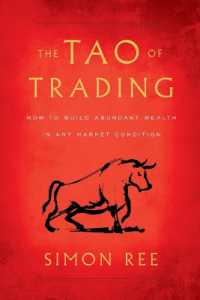- ホーム
- > 洋書
- > 英文書
- > History / World
Full Description
The specter of the Soviet Union lingers in Cuba, yet until now there has been no book-length work on the ways Cubans process their country's relationship with the Soviet bloc. Dreaming in Russian at last brings into the light the reality that for nearly three decades, the Soviet Union subsidized the island economically, intervened in military matters, and exported distinct pedagogical and cultural models to Cuba. Drawing on interviews with Cuban artists and intellectuals, as well as treasures from cinematographic and bibliographic archives, Jacqueline Loss delivers the first book to show that Cuba remembers and retains many aspects of the Soviet era, far from shedding those cultural facets as relics of the Cold War.
Weaving together intriguing, seldom-seen images, Dreaming in Russian showcases the ways in which Cuba's relationship to its Soviet benefactors lingered after the disintegration of the U.S.S.R. in 1991. Analyzing numerous literary texts and works of visual art, Loss also incorporates aspects of architecture, popular culture, the space race, and other strands to create a captivating new perspective on Cuban society. Among the luminaries featured are poet Reina MarÍa RodrÍguez, writer Antonio JosÉ Ponte, visual artist Tonel, and novelist Wendy Guerra. A departure from traditional cultural history, Loss's approach instead presents a kaleidoscopic series of facets, reflecting the hybrid nature of the self-images that emerged in the aftermath of the Soviet aegis. As speculations about Cuba's future under Fidel Castro's heir apparent continue, the portrait that emerges in Dreaming in Russian is both timely and mesmerizing.
Contents
Acknowledgments
Introduction
Chapter 1. Koniec
Chapter 2. Crossed Destinies
Chapter 3. Cuban Intermediaries
Chapter 4. "Made in USSR"
Chapter 5. The Phantasmagoric Sputnik
Coda. The Soviet Theme Park
Notes
Works Cited
Index








